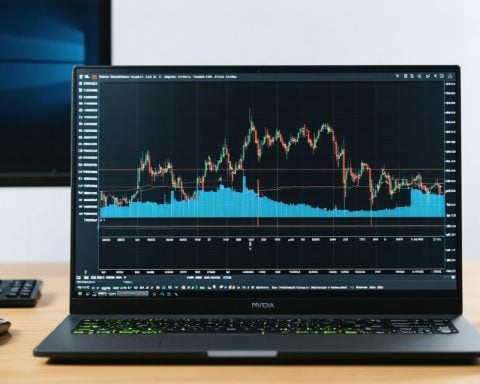Bankruptcy Ends Ambitious Journey
In a surprising turn of events, electrical vehicle start-up Canoo has announced its immediate bankruptcy, marking the end of a seven-year endeavor. This news arrives amidst a challenging year for electric vehicle companies, with competitors like Fisker and Lion Electric also filing for bankruptcy earlier in 2024.
Canoo once held promise, focusing on producing innovative electric vans and securing significant contracts with notable entities such as NASA, the Department of Defense, and Walmart. Unfortunately, the company has now filed for Chapter 7 bankruptcy in Delaware, leaving behind a mixed legacy of ambition and unfulfilled potential.
Details about Canoo’s struggles are revealing. Once considered a potential partner for Apple’s elusive EV project, the company began accepting deposits from consumers, only to start refunding them last November. The leadership, previously helmed by Ulrich Kranz—who had ties to Apple’s automotive initiatives—struggled to steer the company toward success amid unfavorable market conditions.
Canoo’s journey to public trading in December 2021, when it raised approximately $600 million through a merger, offered a glimpse of its aspirations. Yet, with reported liabilities exceeding $164 million against just $126 million in assets, the company couldn’t recover from its financial woes. The furloughing of 82 employees and factory closures only added to the indication that the end was near.
The Broader Implications of Canoo’s Bankruptcy
The bankruptcy of Canoo extends beyond the company itself, reflecting a turbulent period for the electric vehicle (EV) industry that could reshape societal attitudes towards innovation and investment in green technologies. With several prominent electric vehicle manufacturers facing similar fates, this trend signifies a potential reassessment of the sustainability of EV start-ups. Investors and consumers may now exercise greater caution, evaluating the long-term viability of emerging technologies in an increasingly competitive landscape.
The implications for culture and consumer behavior are profound. The initial enthusiasm surrounding electric vehicles has been tempered by the stark reality of market volatility. As competitors falter, consumer trust may wane, impacting future purchases and public perceptions about the practicality and reliability of EVs. The growing concern that not all ambitious projects can successfully transition from concept to reality could lead to a shift in how society values innovation versus proven track records.
Furthermore, the economic ramifications ripple across the global automotive supply chain. Many suppliers and manufacturing partners may face financial strain as start-ups like Canoo collapse, potentially stalling the transition to greener technologies. This underscores the need for strategic partnerships and more resilient business models within the EV space.
Lastly, with the closure of Canoo, environmental impacts of reduced electric vehicle production could hinder climate goals as cities and nations strive toward net-zero emissions. The evolutionary path of transportation is being scrutinized, and the industry must not only innovate but also stabilize to ensure long-term significance in combating climate change.
Is This the End for Electric Vehicle Startups? Insights from Canoo’s Bankruptcy
Overview of Canoo’s Bankruptcy
Electric vehicle (EV) startup Canoo has recently declared Chapter 7 bankruptcy, marking a significant shift in the EV landscape. This announcement follows a challenging year for the electric vehicle industry, during which several companies, including Fisker and Lion Electric, have also faced similar fates. Canoo’s demise raises questions about the viability of numerous new entrants in an increasingly competitive market.
Features and Innovations of Canoo
Canoo distinguished itself with ambitious concepts focused on versatile electric vans and innovative designs aimed at multiple sectors, including commercial and residential markets. The company was involved in developing vehicles that feature a unique “Lifestyle Vehicle” design, which could be adapted for various uses, from delivery services to personal transportation.
Key Partnerships and Opportunities
Despite its eventual failure, Canoo had secured contracts with prominent organizations such as NASA and the U.S. Department of Defense, indicating potential applications for its technology. Additionally, partnerships with retail giants like Walmart aimed to enhance last-mile delivery solutions, showcasing Canoo’s innovative vision for urban mobility.
Struggles and Challenges Faced
Canoo’s journey was plagued with challenges. The company faced significant financial pressure, culminating in liabilities exceeding $164 million against assets of only $126 million. Following a public trading announcement in December 2021 and the capital raised through a merger, expectations were high; however, the inability to convert these opportunities into sustainable revenue hampered progress.
Pros and Cons of Canoo’s Business Model
Pros:
– Unique vehicle designs targeted for flexibility in use.
– Strategic partnerships with government and commercial entities.
– Potential competitive edge with a focus on design and user experience.
Cons:
– Financial instability and mounting debts.
– Market pressures from established automakers and rising competition.
– Leadership struggles and management turnover impacting strategic direction.
Market Analysis and Implications
Canoo’s bankruptcy highlights significant trends within the EV market. Increasing competition, economic downturns, and supply chain disruptions have created a challenging environment for startups. Many companies face difficulties in scaling operations and maintaining capital flow necessary for growth in an already saturated market.
Future Predictions for Electric Vehicle Startups
The failures of companies like Canoo, Fisker, and Lion Electric may pave the way for a “survival of the fittest” scenario in the EV sector. As large manufacturers solidify their positions and expand their electric offerings, startups must innovate continuously and establish solid financial foundations to compete effectively.
Sustainability and Security Aspects
Canoo’s approach to sustainable vehicle development will be examined in the aftermath of its failure. The concerns for sustainability will play a critical role as consumers become more environmentally conscious, requiring companies to embrace these principles in design and production processes systematically.
Conclusion
The end of Canoo serves as a cautionary tale for aspiring electric vehicle startups. While innovation is key, so too is financial stability and market adaptability. The EV landscape is evolving, and those who can balance ambition with practicality will thrive in the future.
For further insights into the evolving market of electric vehicles, visit AutoWeek.


















